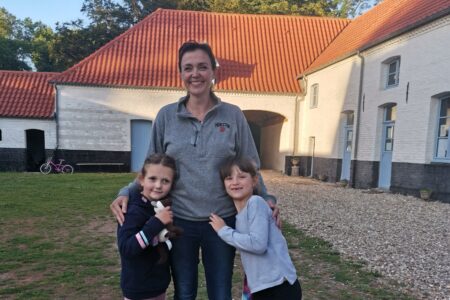
Worldwide dementia cases are set to triple, from 57 million in 2019 to 153 million living with dementia by 2050. This was announced during the Alzheimer’s Association International Conference in 2021.
“Dementia doesn’t just affect individuals, it can devastate whole families and networks of friends and loved ones,” says Hilary Evans-Newton, Chief Executive of Alzheimer’s Research UK. “The heartbreaking personal cost of dementia goes hand-in-hand with huge economic and societal impacts, strengthening the case to governments across the world to do more to protect lives now and in the future.”
Even now, caregivers worldwide are calling for more support.
The problems are the same. In Singapore, caregivers are struggling with burnout and rising costs. Canada is asking for societal recognition and policy interventions. South Africa wants more trained caregivers or access to private or state-run outpatient support or residential care facilities. Brazil echoes the same.
For Chia Yi Tay, it’s not so much as “caregiving” than it is being a “care partner.”
It’s a word that is slowly making headway in the caregiving landscape.
A Stanford University platform once asked its audience, “What is the difference between a care partner and a caregiver?” The answer: “The difference between a one- versus a two-way street. The term [caregiver] suggests that the recipient of care takes a passive role.”
Tay’s analogy is simple: the care partner and recipient are in the car together, and their end goal is the same place, like a doctor’s appointment.
Tay herself is a care partner for her mother-in-law, who is a cancer survivor. “Being one made me realise that whenever we work with a patient, you must also work with the partner or partners,” she says.

Dementia care advocate Chia Yi Tay, who pursued a bachelor’s in speech-language pathology, is pictured during a work placement in Malaysia. Source: Chia Yi Tay
The journey into working in healthcare and care partnering
Born and raised in Malaysia, Tay, who was hoping to earn a degree in medicine, had the opportunity to attend a five-day hospital attachment upon completing her secondary school exams. During that period, she spent a day each in general surgery, paediatrics, obstetrics and gynaecology, and the emergency department.
But at the end of the week, medicine was no longer what Tay wanted to pursue.
“I think it’s because of how much of a touch-and-go feeling it is,” she says. “I felt like I didn’t have much time because you’d be working on one case and had to move on to the next quickly. I realised there that I’m not into the quick and acute forms of medicine; I’m more into rehab and building a relationship with my patients.”
With that realisation, it was figuring out what part of healthcare would let her do just that.
The answer? Occupational therapy.
Unfortunately for Tay, the university she was applying to was not offering the programme for her year, so she had to go with the next best option: speech-language therapy.
Fast-forward to the present, Tay is a public hospital-based, registered speech-language therapist who works on medical-based cases.
Her work primarily revolves around patients with speech-language delays and a combination of other symptoms, such as those who had surgery due to other medical issues.
Tay also works in acute care, the intensive care unit, palliative wards, and dementia care, the latter being something of a specialty thanks to her Master’s in Dementia Studies degree from Bangor University in Wales.
“Suppose the patient comes in for a broken bone, but they have dementia too, so I work with my colleagues to make sure we’re supporting the patient the best way we can,” says Tay.
The decision to pursue this niche subject came six years into Tay’s work in a government hospital.
She knew that Malaysia’s population was ageing and she saw more incidents of people living with dementia, without any support available to them.
“In most cases with palliative or end-of-life care, it’s most certainly guaranteed that your patient would come in, and the only way out is through the mortuary,” says Tay.
“There’s no ‘Oh, my patient made a full recovery’ moment, so this line of work isn’t very exciting and exhilarating, which is part of why not many are driven or drawn to the field.”
But Tay felt differently.
She was drawn to the field and began looking for communities to try to understand what they needed.
It didn’t take long for her to realise that Malaysia wasn’t the place to pursue end-of-life studies.
“There are no policies, no clear clinical guidelines. My colleagues and I wanted to help, but when we get a case, we don’t really know how to proceed with it,” she says.
With that, Tay looked abroad. Specifically, she set her sights on the UK, where the quality of death and dying is highest according to recent research funded by the Lien Foundation, which ranked 81 countries globally.
She found what she needed at Bangor University.

Tay, middle, pictured volunteering with AgeCymru, a Wales charity for older persons. Source: Chia Yi Tay
For Tay, the best part of her Bangor degree was that her lecturers, nurses, dementia care nurses, occupational therapists, and clinical psychologists were all people living with dementia.
“It challenges your perception of what dementia looks like. The advertisement shows an old person sitting in a wheelchair in the corner of the room? There was none of that. It was a university lecture, and I want that for Malaysia,” she says.
Better yet, Tay’s cohort consisted of only four people, including herself. There were nurses and occupational therapists, and together, the class shared what they did in dementia care and how they could implement each other’s insights and learnings into their own work.
And while every part of her one-year programme exposed her to a new breadth and depth of dementia studies, one course stood out: Leadership in Context.
It was all about learning how to lead and facilitate change in health and social care, something that Tay was hoping for.

Tay conducting a workshop for dementia patients and their care partners. Source: Chia Yi Tay
Defusing her country’s dementia ‘time bomb’
In Western settings, caregiving revolves around hospitals or having someone from a community centre visit the care recipient’s home to ensure everything is well.
However, caregiving in Eastern cultures is often unpaid work done by family members or, if they can afford it, a domestic helper to assis.
Beyond that, government policies in Western countries are more advanced too. Finland is noted to have the best care availability and affordability for people with dementia and their carers. In contrast, Malaysia, which is facing a dementia “time bomb,” still doesn’t have a National Dementia Care Plan in place.
Things improved in late 2022 when former Malaysian Prime Minister Tun Abdullah bin Ahmad Badawi was diagnosed with dementia.
“Having a high profile person get diagnosed and their family coming out to say that it is difficult to be a carer sort of sped things up, like getting the National Dementia Care Plan and the Mental Capacity Act in so that there is future planning in the works,” she says.
Now, Tay is focusing more on capacity building, training patients and their care partners to read journals and demand policies themselves.
“It’s not enough that I am the one making noise on social media wherever I think that I need better dementia care. I’m building the dementia expert group in Malaysia right now because I want them to be consulted when people want to know more about the topic. Let them challenge the perception that we have of dementia patients.”

Despite the uphill battle with advocating for dementia care policies, Tay is determined to give it her all in hopes of securing a better future for herself. Source: Chia Yi Tay
The ‘selfish’ reason to help strangers
As if she wasn’t already dedicating a significant portion of her life to helping others, Tay volunteers with the National Stroke Association Of Malaysia (NASAM) as a visiting speech-language therapist and with the Malaysian Association of Speech-language & Hearing (MASH) as the organisation’s vice president outside of her official hospital duties.
At NASAM, she works with families who don’t always have access to doctors and teaches them the best practices for continuing care from the hospital and centres to their homes.
At MASH, she helps organise events that raise awareness of and continuous professional development courses to maintain service delivery and skills. She also plays a part in drafting position statements with the executive committee.
It’s work that doesn’t pay much.
The Economic Research Institute reports that Malaysia’s speech-language therapists earn an average of US$21,953 per year, significantly less than the US average of US$113,823 per year (as reported by Indeed).
In 2023, Malaysia’s Ministry of Health reported that only 156 speech-language therapists were employed in the public sector. More people were opting for work in the private sector due to attractive incentives such as higher salaries and better working conditions.
“The ideal answer to why I’m doing all this work is altruism and the like, but no, I’m a very selfish person,” laughs Tay. “I want to make sure that there are changes by the time I need the system.”
“But another thing that keeps me going is seeing the changes in perception in the community. I have people who don’t have any university training in literature reviews being able to scrutinise research and say, ‘How come they didn’t include us in the methodology?’”
For Tay, it’s also about changing the narrative.
In a world where caregivers are showing increased stress and higher rates of burnout, giving them room to catch their breath and recover will be better in the short and long run.
Tay likens it to charging the power bank before using it to charge another device — there’s no charging anything if the power bank’s battery is low. Another analogy Tay shares is the flight safety tip: putting your life jacket on yourself before helping someone else.
“It’s not been an easy thing to do. I’m very highly motivated by very selfish thoughts. I want this for myself; I want the community to be ready. I want the National Dementia Care Plan to be ready when I am at the highest risk.”










